Decorating With Chinoiserie – Everything You Need to Know
Chinoiserie is a style that has been around for centuries, but is it still relevant in modern decor? Absolutely! Here’s everything you need to know about decorating with chinoiserie, from its timeless appeal to mixing it with your current decor.
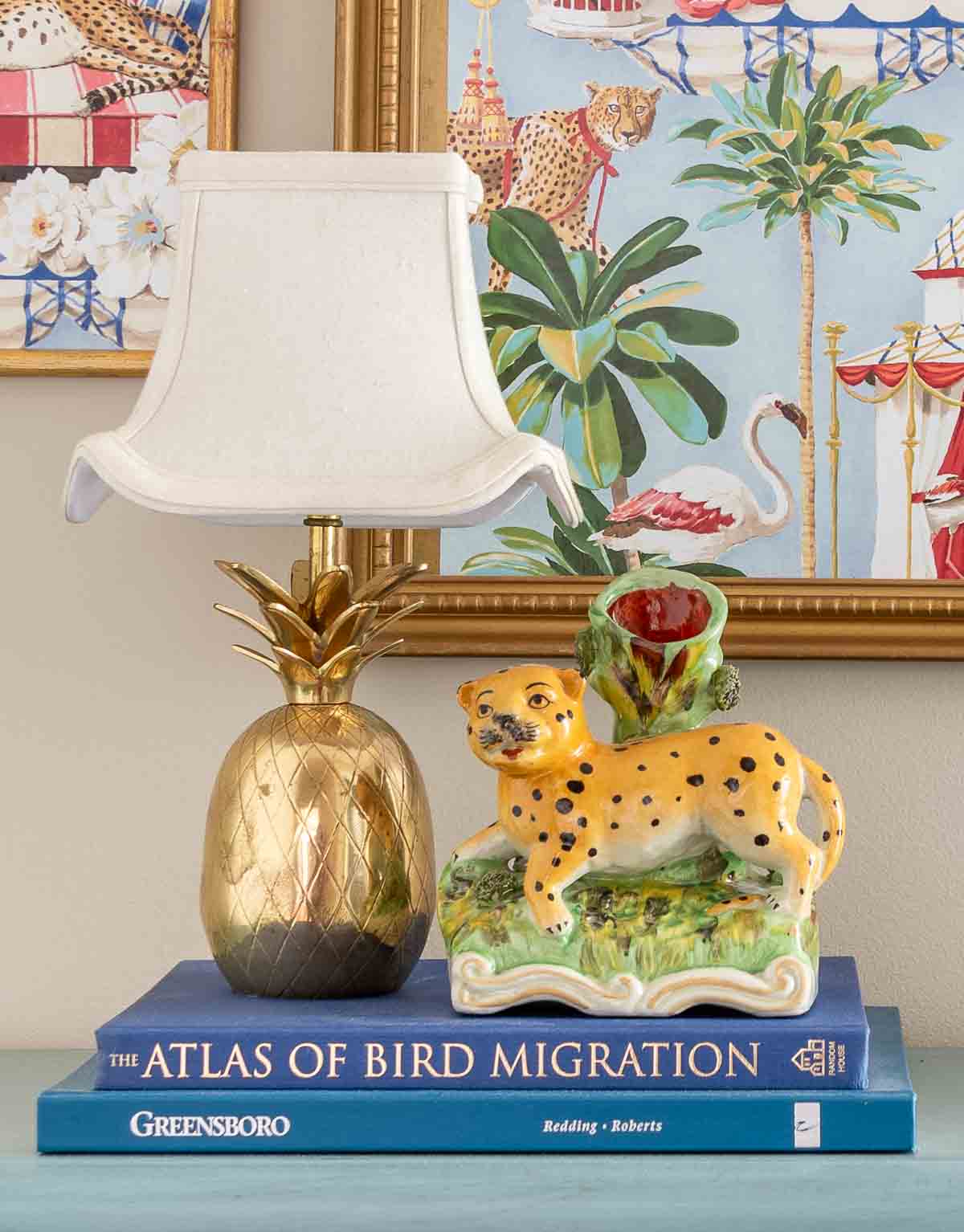
In case you haven’t noticed, chinoiserie decor has been enjoying a huge resurgence in popularity.
Anyone who has been following me for a while is bound to already know about my love of chinoiserie.
I’m not the only one either. Interior designers and homeowners from all walks of life are anxious to create timeless interiors by blending the decor styles of today with its traditional design.
People are drawn to it because of the motifs (they can be hand-painted or reproduced) consisting of nature scenes and florals that tell stories and add a layer of sophistication to any space.
What is Chinoiserie Style?
Interestingly, the word “chinoiserie” is derived from a French term and denotes a European style of art heavily influenced by Chinese aesthetics. It’s a whimsical and romantic interpretation of what Europeans thought life in the Far East must be like.
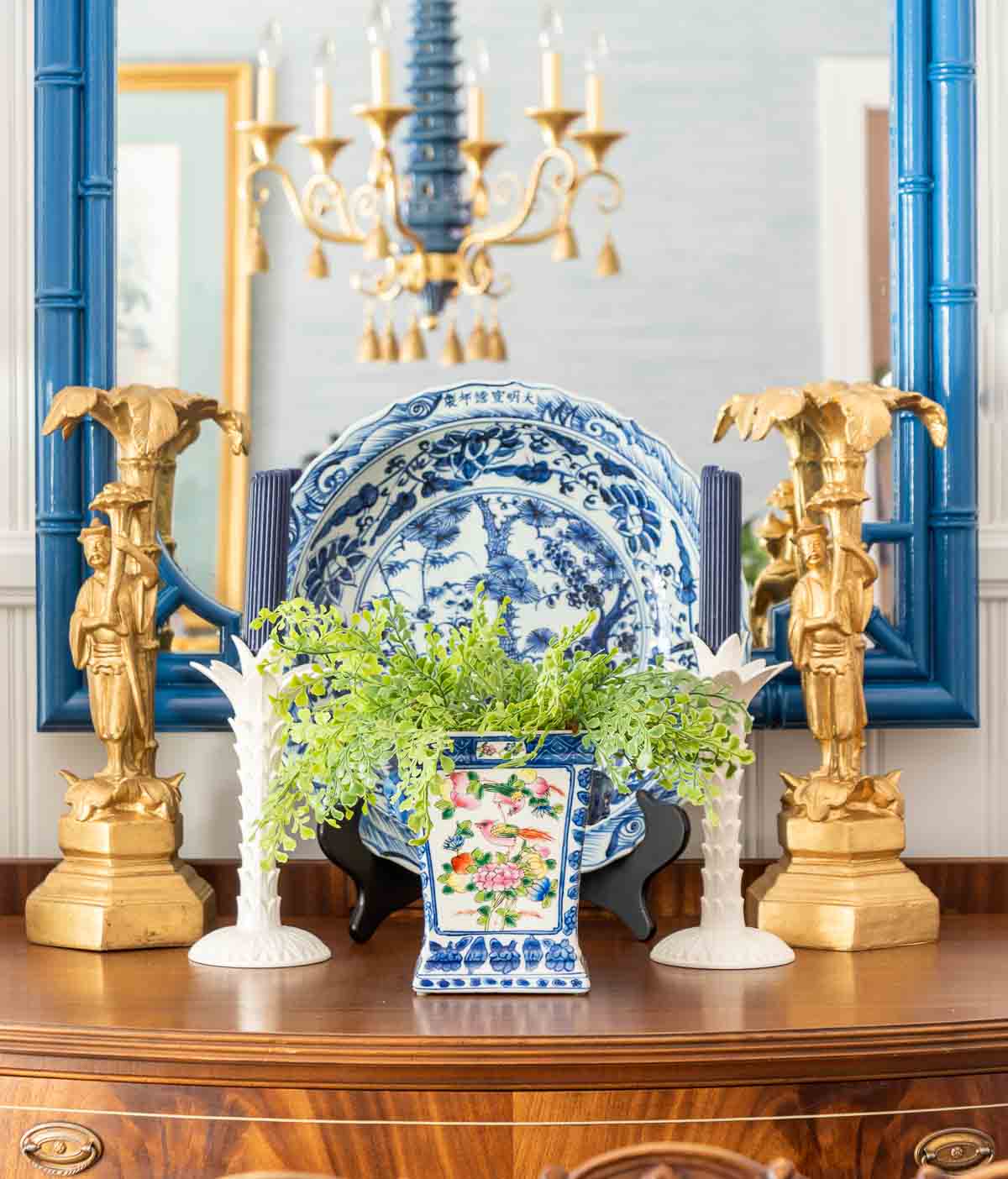
We ususally perceive it as “Chinese” when in fact, it’s a European creation! Isn’t that surprising?
But the real scoop is that it originated in the 17th century during a time when Europe was enamored with all things Asian.
During the 18th century, particularly in France and England, a fascination with it translated into the decorative arts, which led to the creation of chinoiserie.
The aristocracy and upper classes, who were the primary consumers of this style, appreciated chinoiserie for its novelty and as a symbol of wealth and worldly sophistication.
It’s characterized by its depiction of Chinese and other East Asian artistic traditions and includes a range of decorative arts featuring motifs like pagodas, mythical creatures, florals, and lush landscapes.
So…..bottom line – it’s a classical style that has been around a long time! You’ll see depicted most often on wallpapers, ceramics, furniture, and textiles.
Kind of interesting, right?
Is Chinoiserie Still in Style?
Is chinoiserie still in style? Absolutely! It never really left the design scene. As I said earlier, it’s enjoying a huge resurgence today.
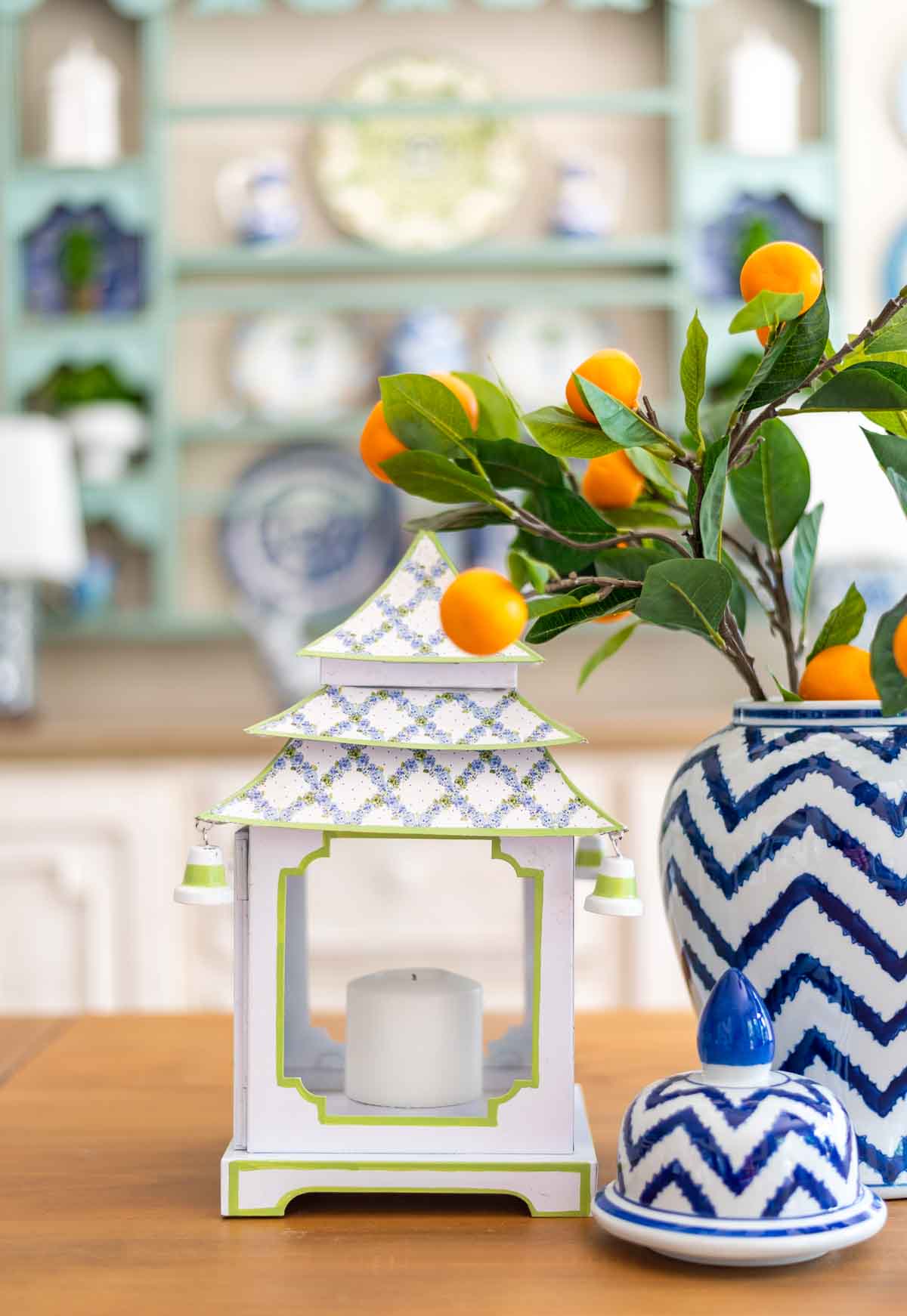
This elegant design style continues to hold a special place in both traditional and contemporary interiors.
Far from being a fleeting trend, it has sustained its popularity because it offers a unique combination of beauty and history that can fit right in with today’s tastes in home decor.
And incorporating it into your home doesn’t mean you have to adhere to a traditional design style either. It’s a decor classic that allows for creativity and personal expression.
How to Decorate With Chinoiserie?
The typical chinoiserie motif is most commonly used on porcelains such as plates, vases, ginger jars, cachepots, planters, bowls, foo dogs, and urns.
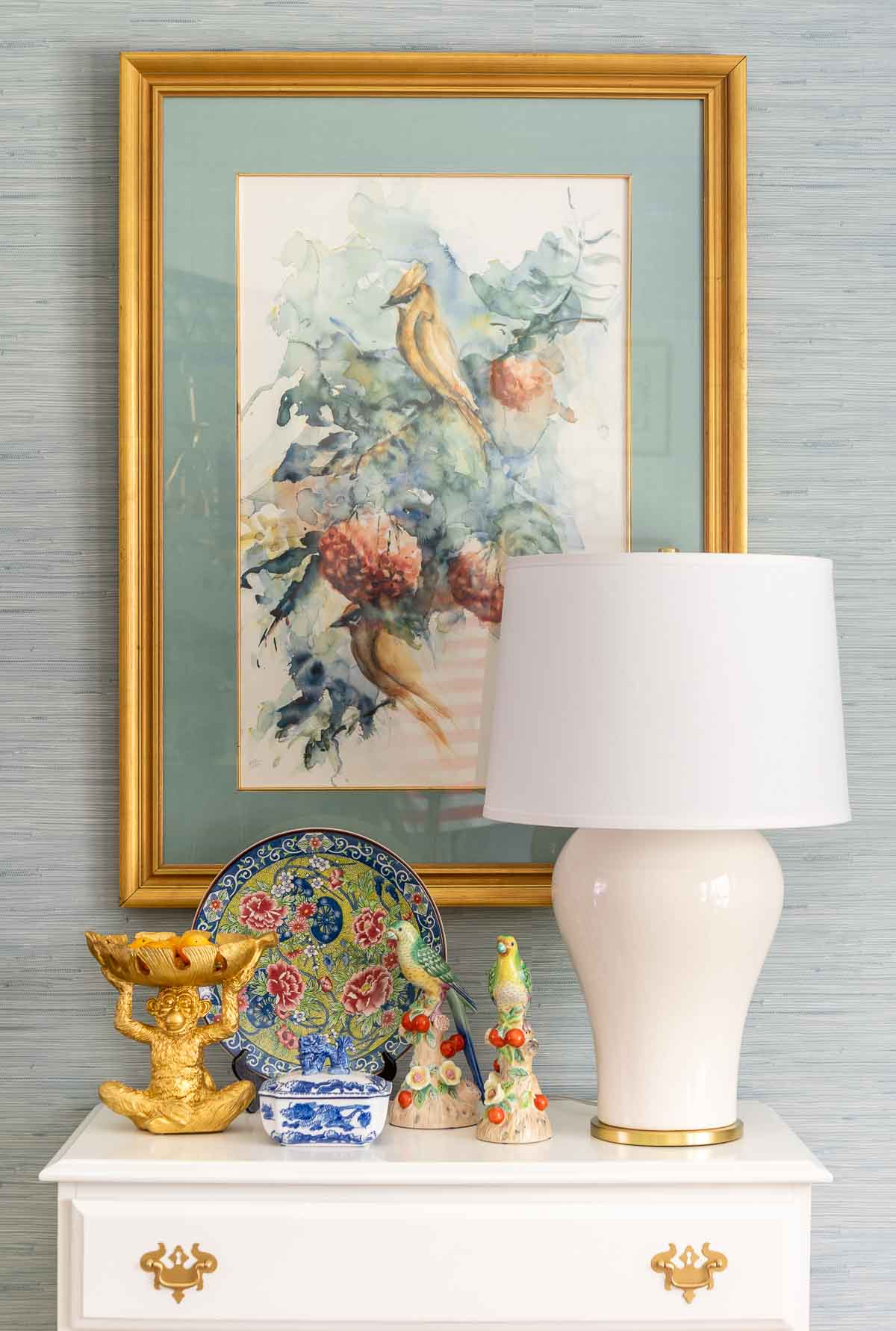
Porcelain Chinese figurines and lamps, along with metal (tole) lamps, are other common pieces.
The key to decorating with it is to use it as an accent rather than the main theme. A few well-placed pieces can really make a room stand out.
- Chinoiserie wallpaper can be a focal point in a dining room or bedroom.
- A pair of foo dogs or lions look great on a fireplace mantel.
- Ginger jars can be used for storage as well as purely for decoration.
- Bowls with a chinoiserie design, filled with greenery orbs, look pretty on a coffee table.
- You’ll never go wrong with an orchid in a chinoiserie cachepot for a centerpiece.
- If color isn’t your vibe, look for all white chinoiserie decor.
- For a nice pop, add a Chinese style blue and white vase to neutral decor in a bookcase.
- Place an artificial or real fern in a chinoiserie planter on your fireplace hearth.
- Put together an eye-catching vignette with a grouping of smaller pieces displayed together on a tray or basket for a coffee table arrangement.
- Add a small touch to a room with the use of faux bamboo picture frames.
- Mix chinoiserie style plates in with other plates on a plate rack.
As an example, I’m using a blue and white lidded ginger jar to hold my coffee pods. This whole area makes my early mornings so much cheerier!
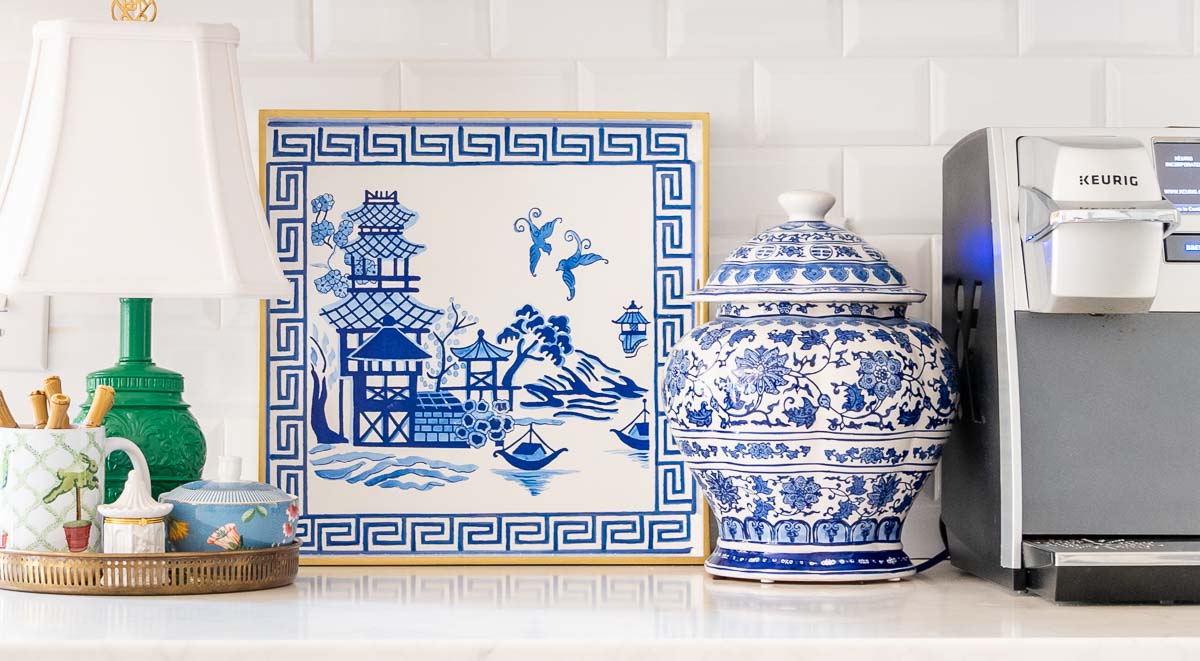
If you’re wondering how to mix it with your existing decor, it’s simpler than you might think! It works well with many styles.
If you’re new to the world of chinoiserie style, start small with accessories such as throw pillows or a decorative lamp. And then add to your collection as much as you like.
Be careful though – when displaying chinoiserie pieces, pay attention to balance and proportion. For example, if you choose a large piece like a chinoiserie cabinet, let it be the star and keep other decorations minimal.
Don’t Take It Too Seriously
Don’t think it’s all serious business and that you can’t have fun with this style.
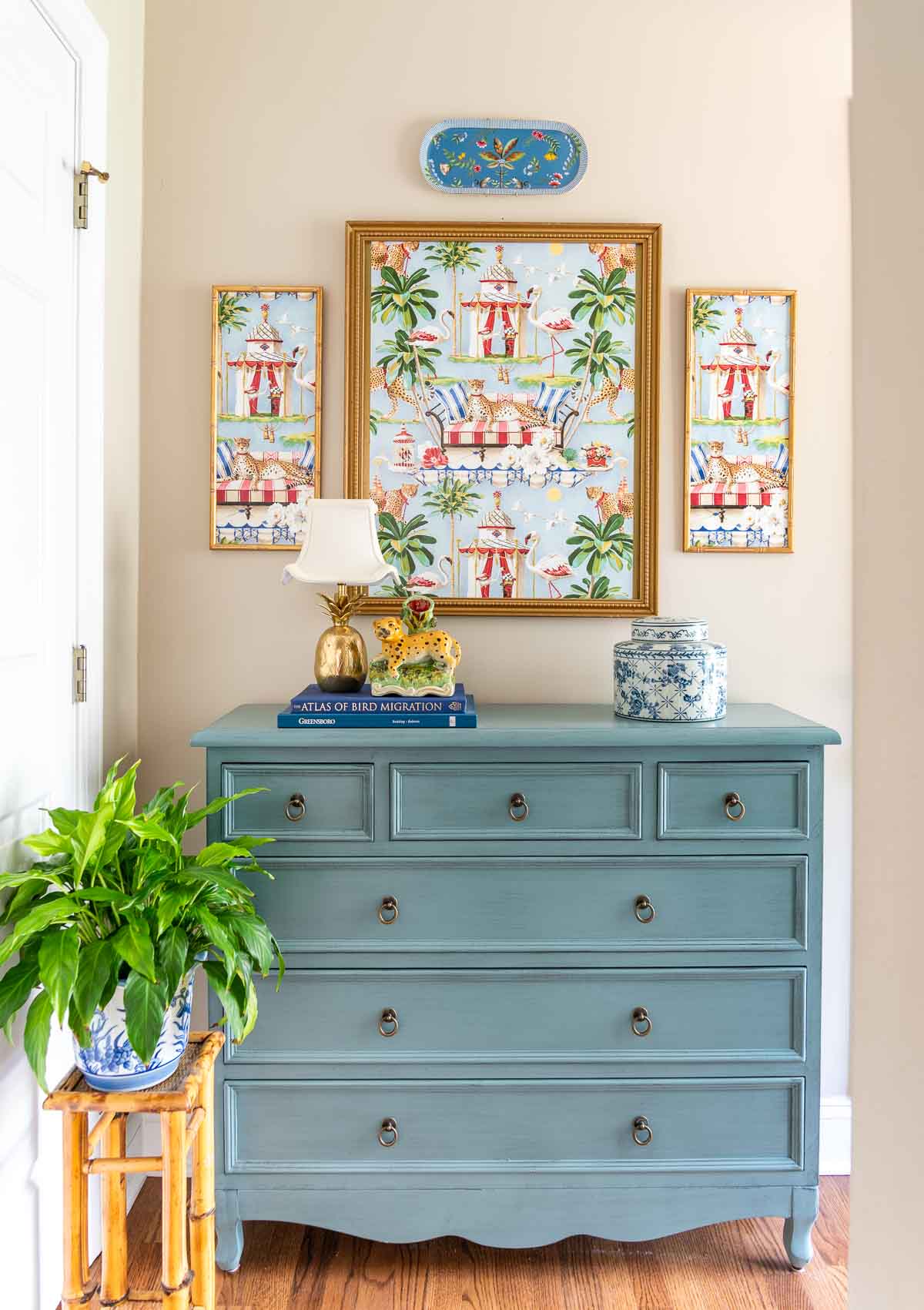
One of the most popular types of chinoiserie decor today is the use of images that lean toward the whimsical.
Look for fun, stylized images of pagodas, cheetahs, monkeys, elephants, flamingos, and other animals on fabric, in artwork, wallpaper and in the form of accessories.
Adding just a small pop of whimsy will certainly liven up a room and prevent it from feeling stuffy or pretentious.
Are Chinoiserie Elements Always Blue and White?
While blue and white are the most traditional color scheme, they certainly aren’t the only option.

Chinoiserie designs can also be found in a variety of colors, including vibrant reds, soft pinks, and earthy greens.
The choice of color often depends on the mood you want to create and the existing palette of your space.
Chinoiserie Furniture
Furniture in this style ranges from pieces with elaborate decorations, such as inlays and intricate carvings, to pieces with simple lines that have fretwork where legs meet a tabletop or the bottom of a chair.
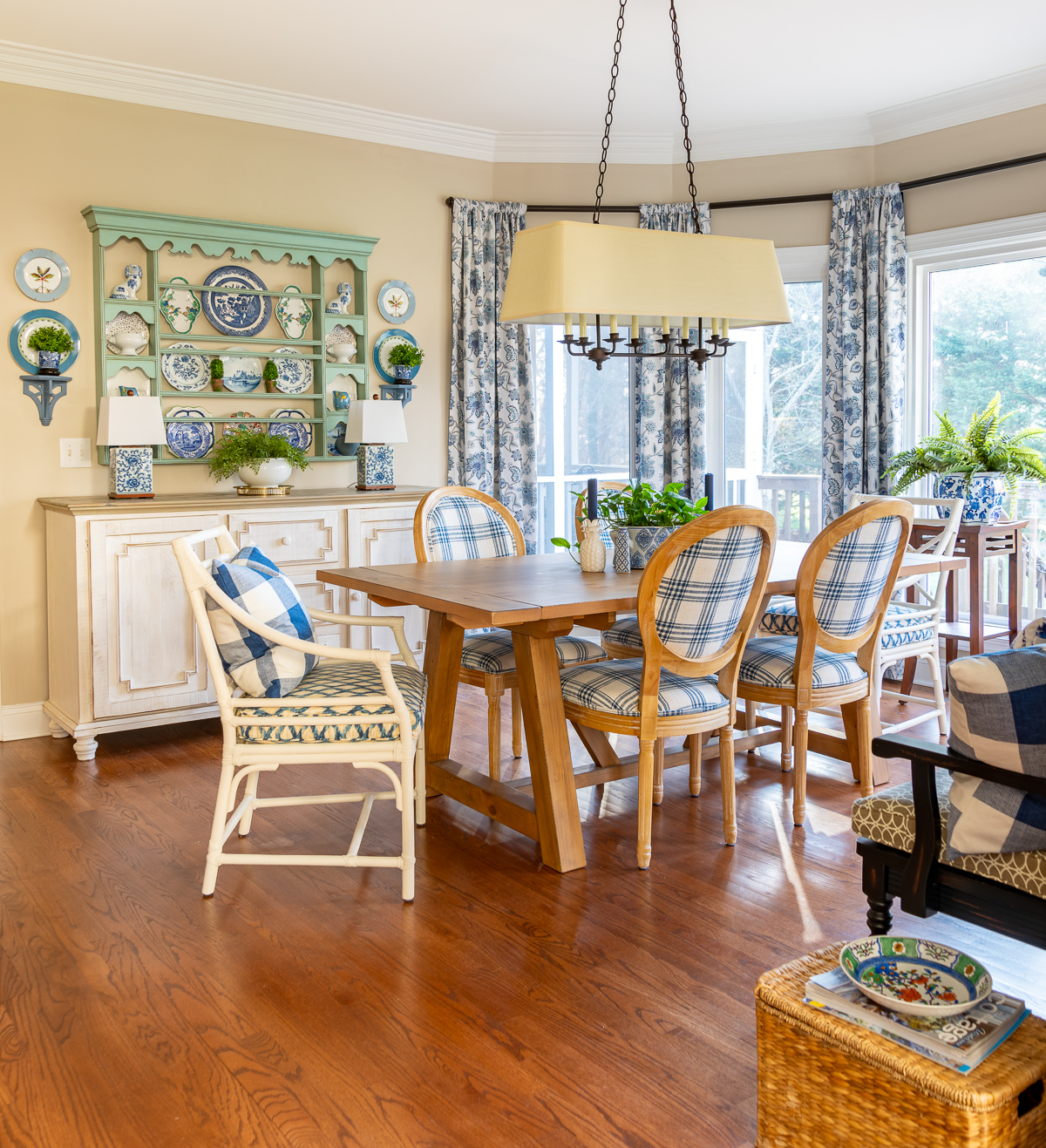
Antiques are often lacquered, with a very high gloss finish. However, most recently there’s been a rise in popularity of faux bamboo furniture that has been lacquered in preppy, bright colors.
Then there’s Chinese Chippendale style furniture which is known for its extensive use of elaborate fretwork, lattice designs, and pagoda motifs. The fretwork is often seen in the back splats of chairs and the sides of cabinets.
This type of furniture can include a variety of pieces, such as chairs, tables, cabinets, and mirrors, all distinguished by their ornate and detailed craftsmanship.
The Best Places to Shop for Anything Chinoiserie
Most of my pieces (artwork, accessories, and furniture) have come from local consignment stores.
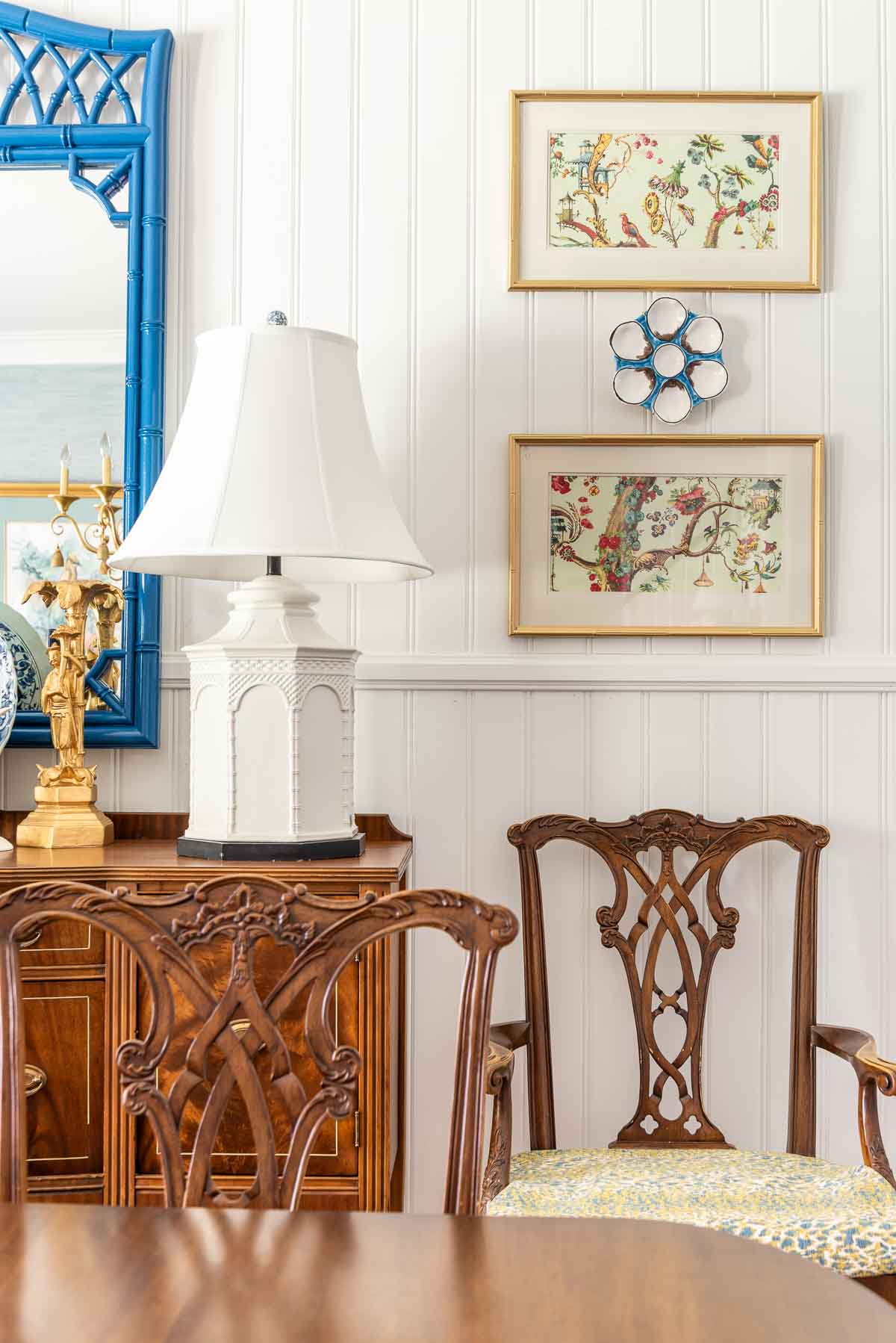
The popularity of estate sales, consignment, and thrift store shopping is at an all time high.
Ever popular Etsy and eBay have become treasure troves for finding both vintage and new chinoiserie pieces from the comfort of your own home.
Also don’t overlook the many, many resellers to be found on Instagram and other social media who are catering to the growing trend and preferences of home decorators.
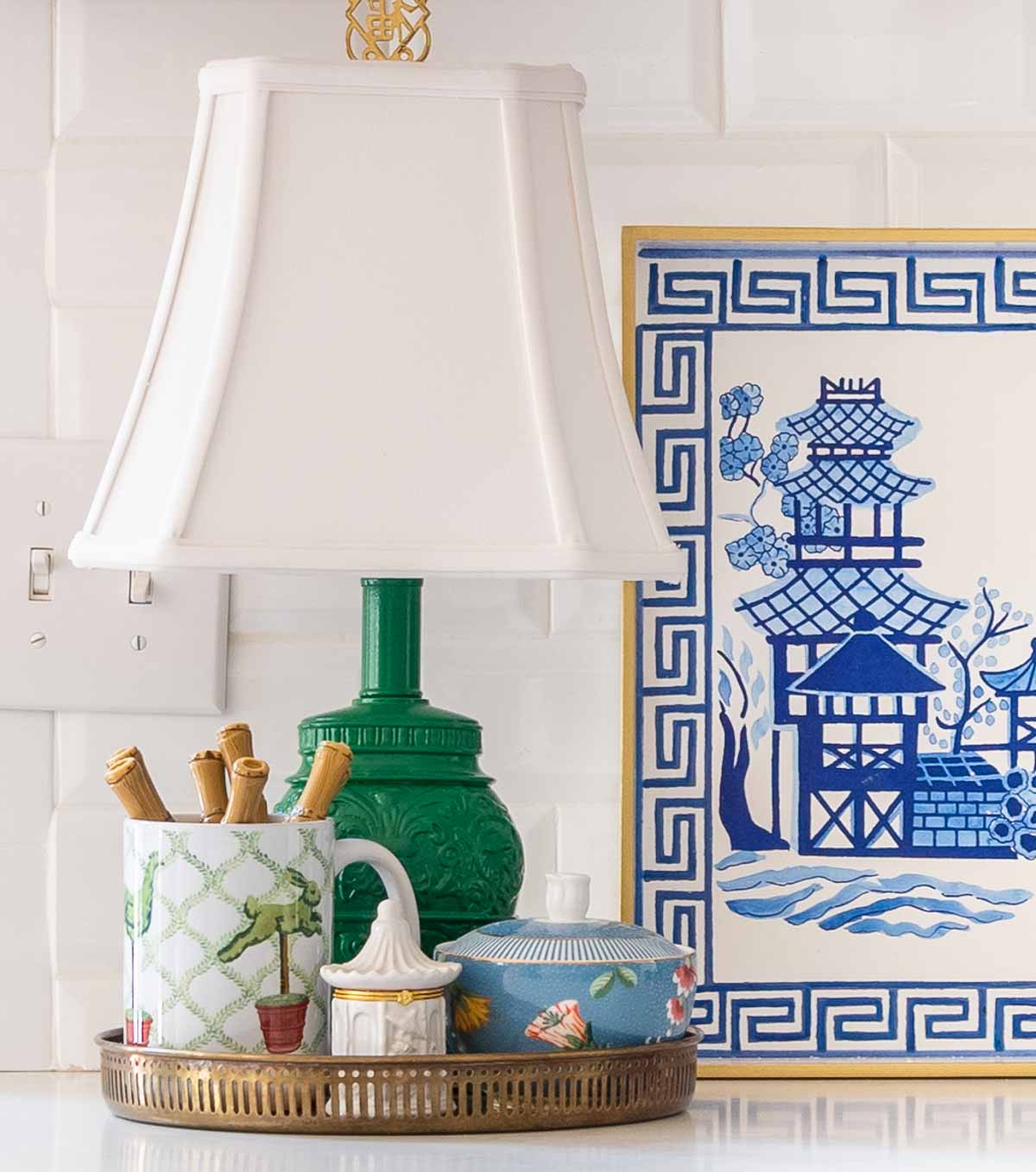
As it continues to gain in popularity, it’s obvious that more and more retailers are catering to the growing trend because I see it everywhere – HomeGoods, At Home, Kirklands, and Ballard Designs, to name a few.
How About Seasons and Holidays?
Incorporating your chinoiserie pieces into your seasonal and holiday decor is a piece of cake!
All of the colors of spring were a natural fit.
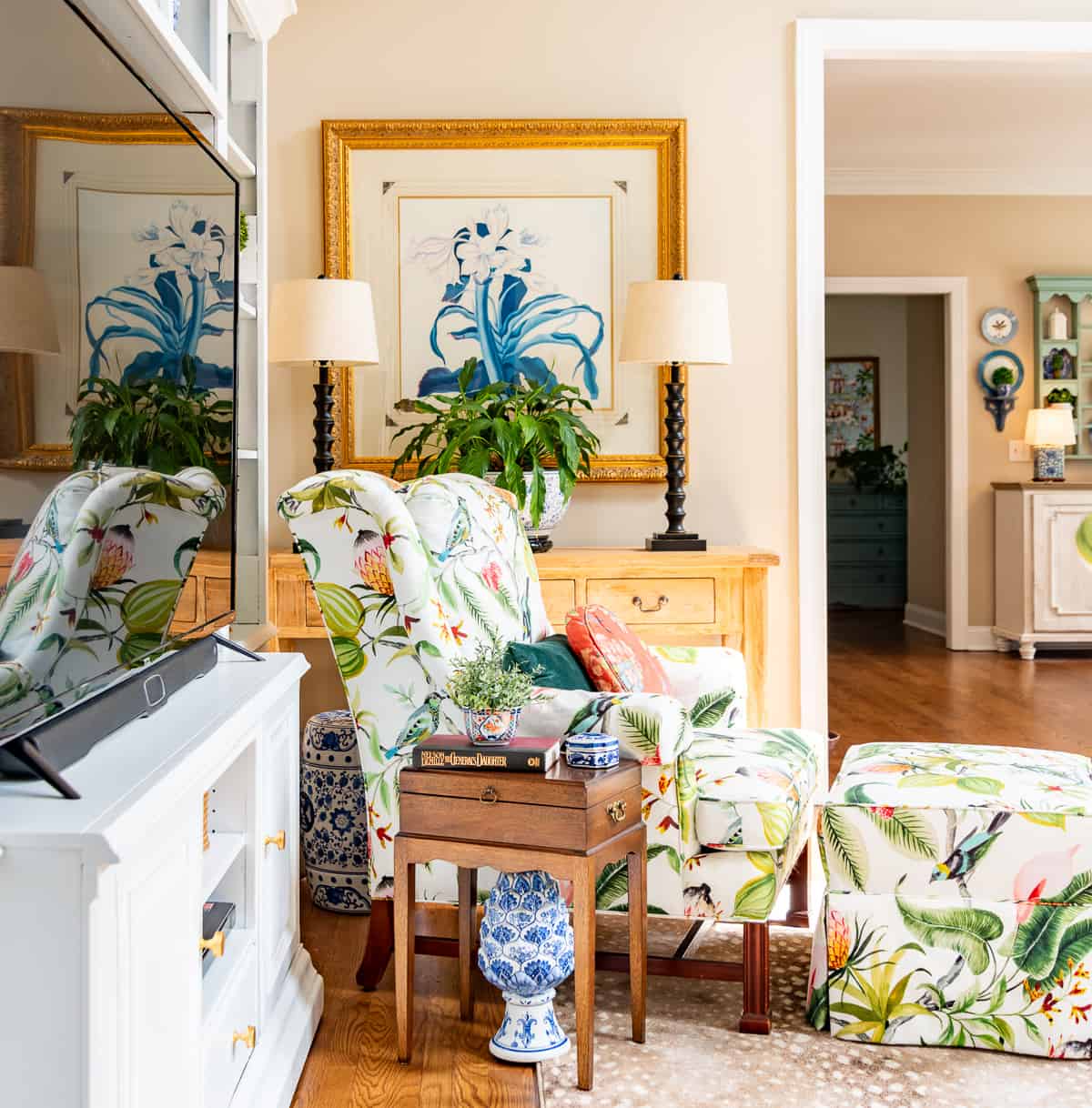
And the vibrant hues of oranges and rusts look so pretty mixed with chinoiserie blue and white for the fall.
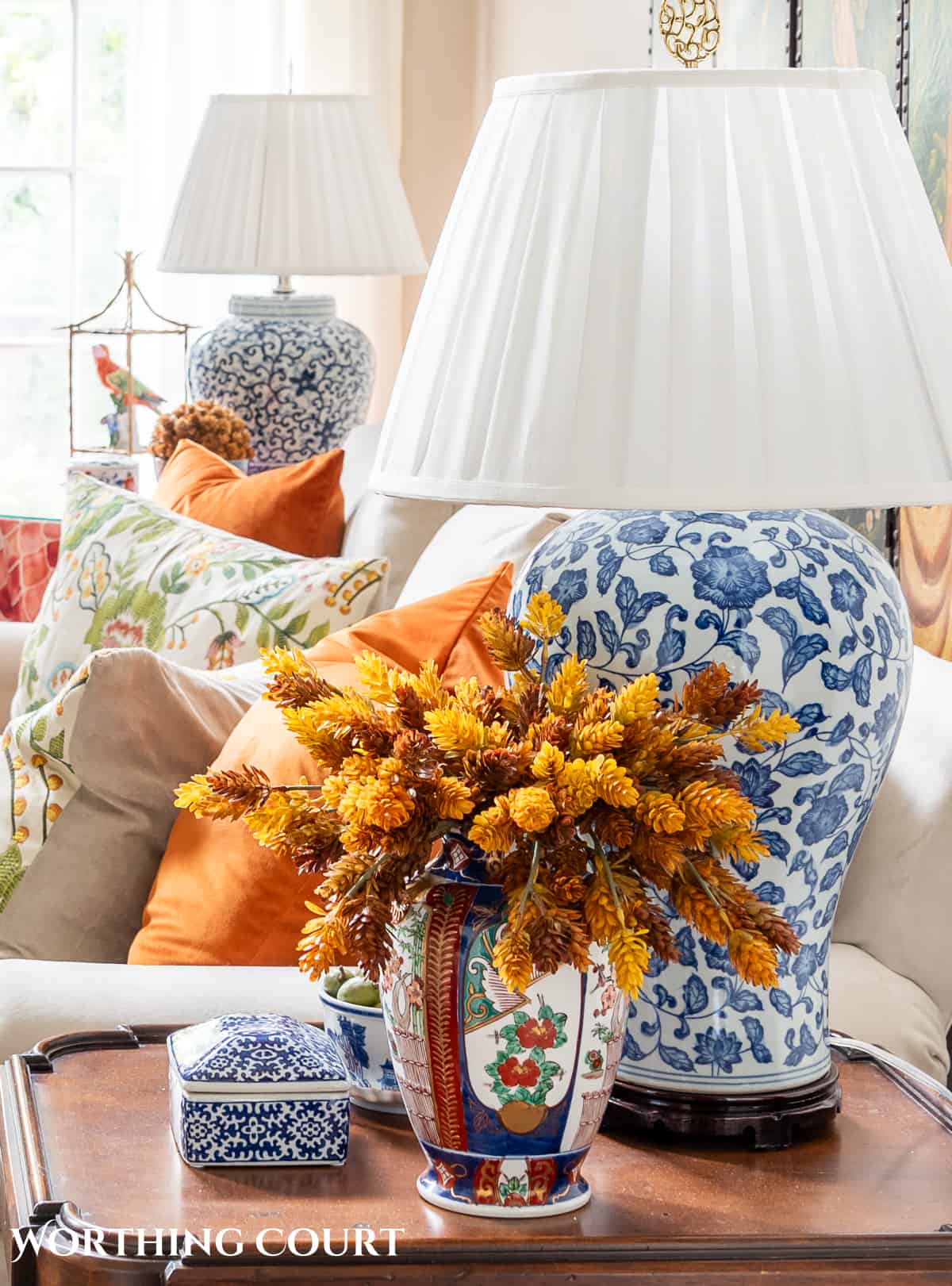
At Thanksgiving, my table was filled with a beautiful mix of blue, white and burgundy.
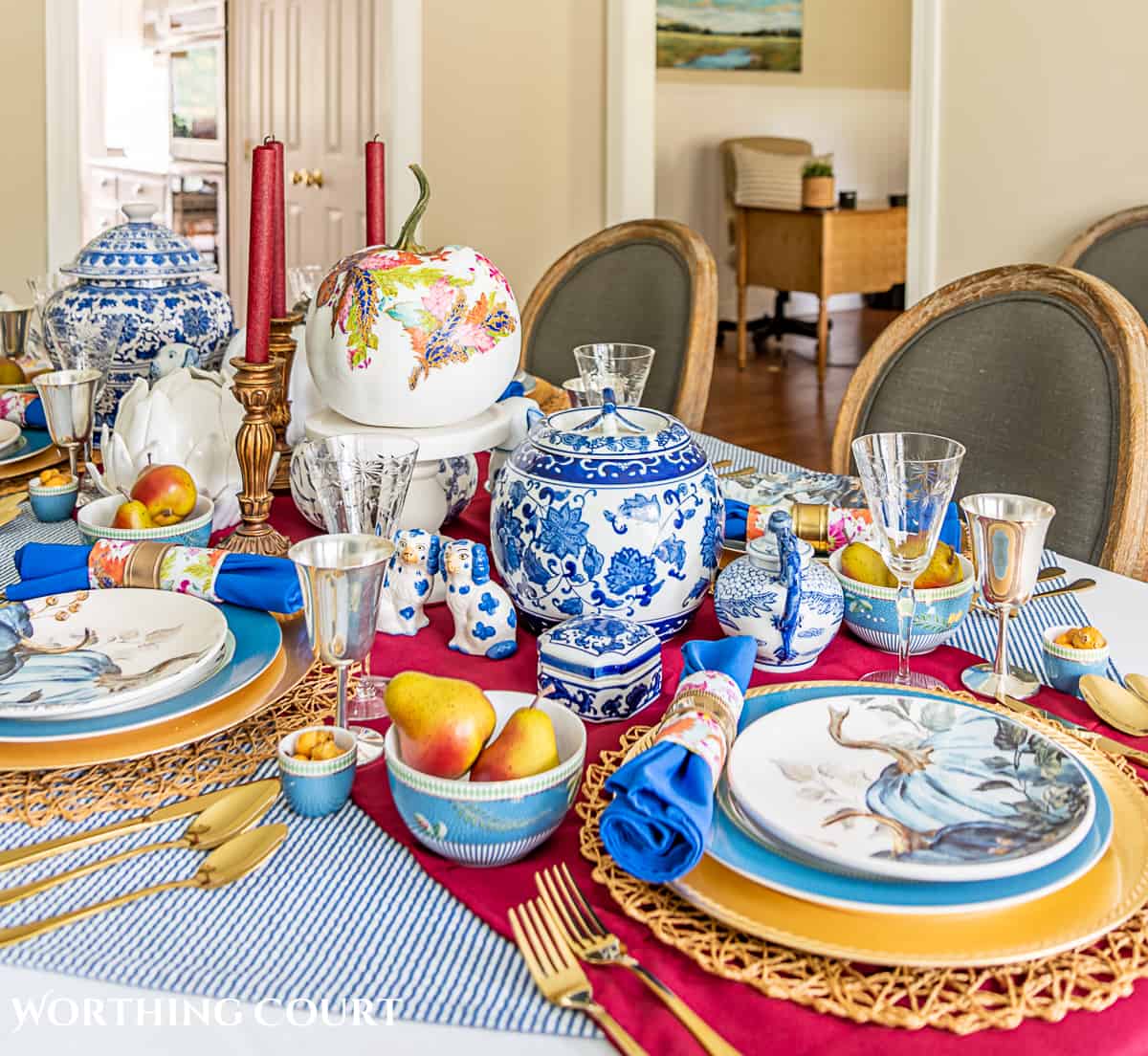
I loved displaying our Christmas tree in a large blue and white pot last Christmas.
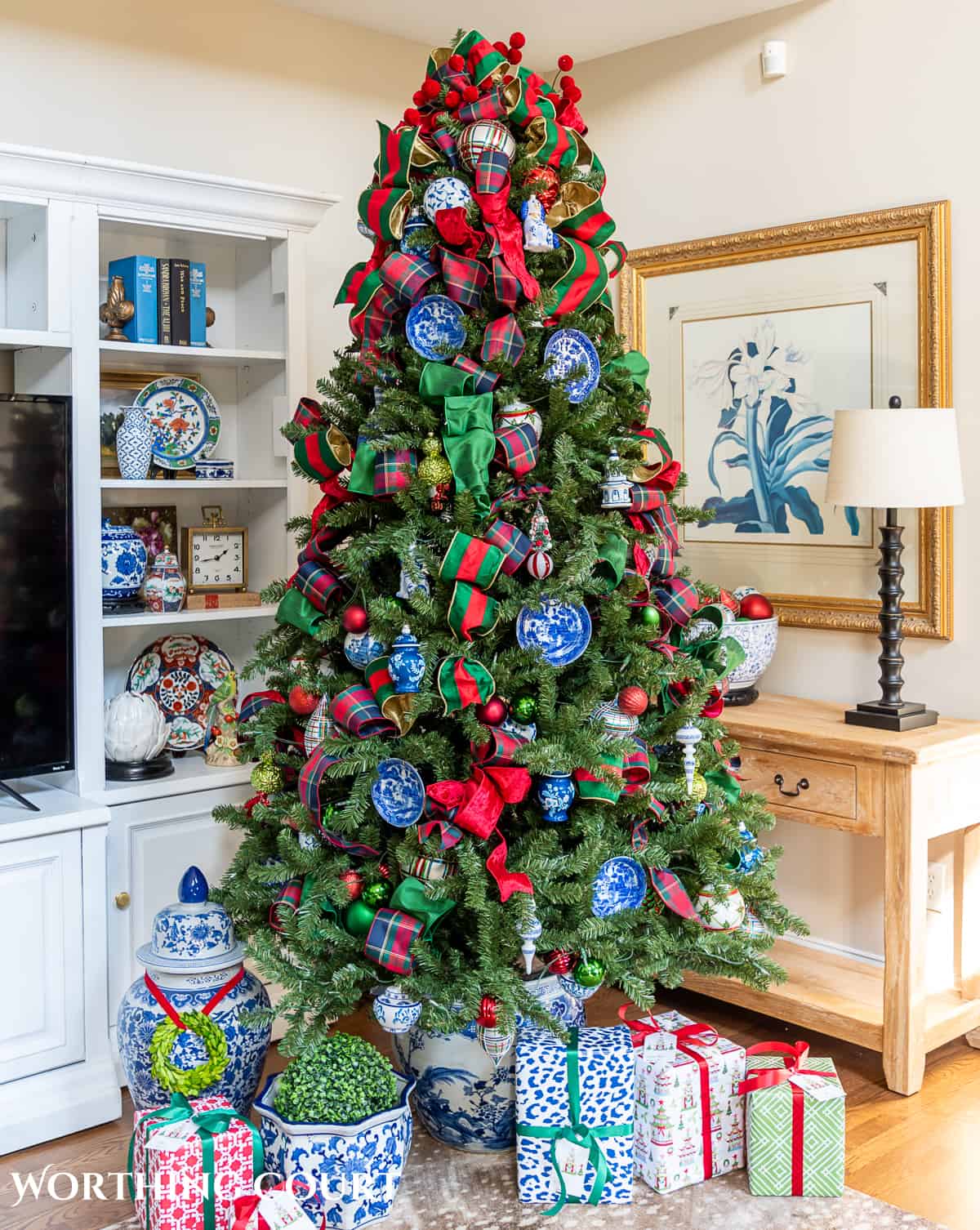
In fact I had it sprinkled throughout all the spaces in my house. I think it was my favorite Christmas ever:
The moral of the story is that incorporating this style into your home decor is a beautiful way to bring a touch of elegance to your rooms and plays well with just about any other style of decor.
So why not explore the world of chinoiserie and see how it can enhance your space?
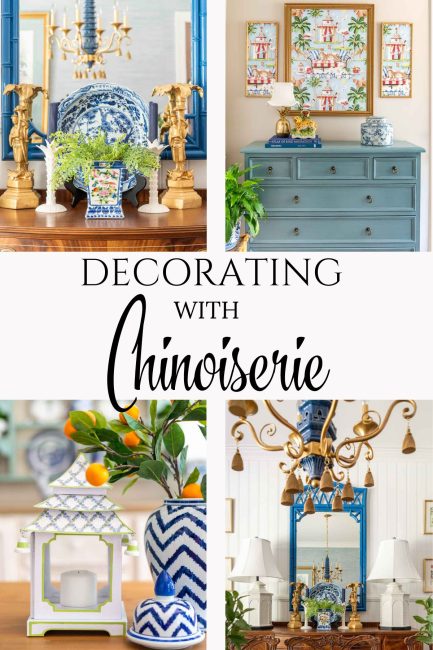
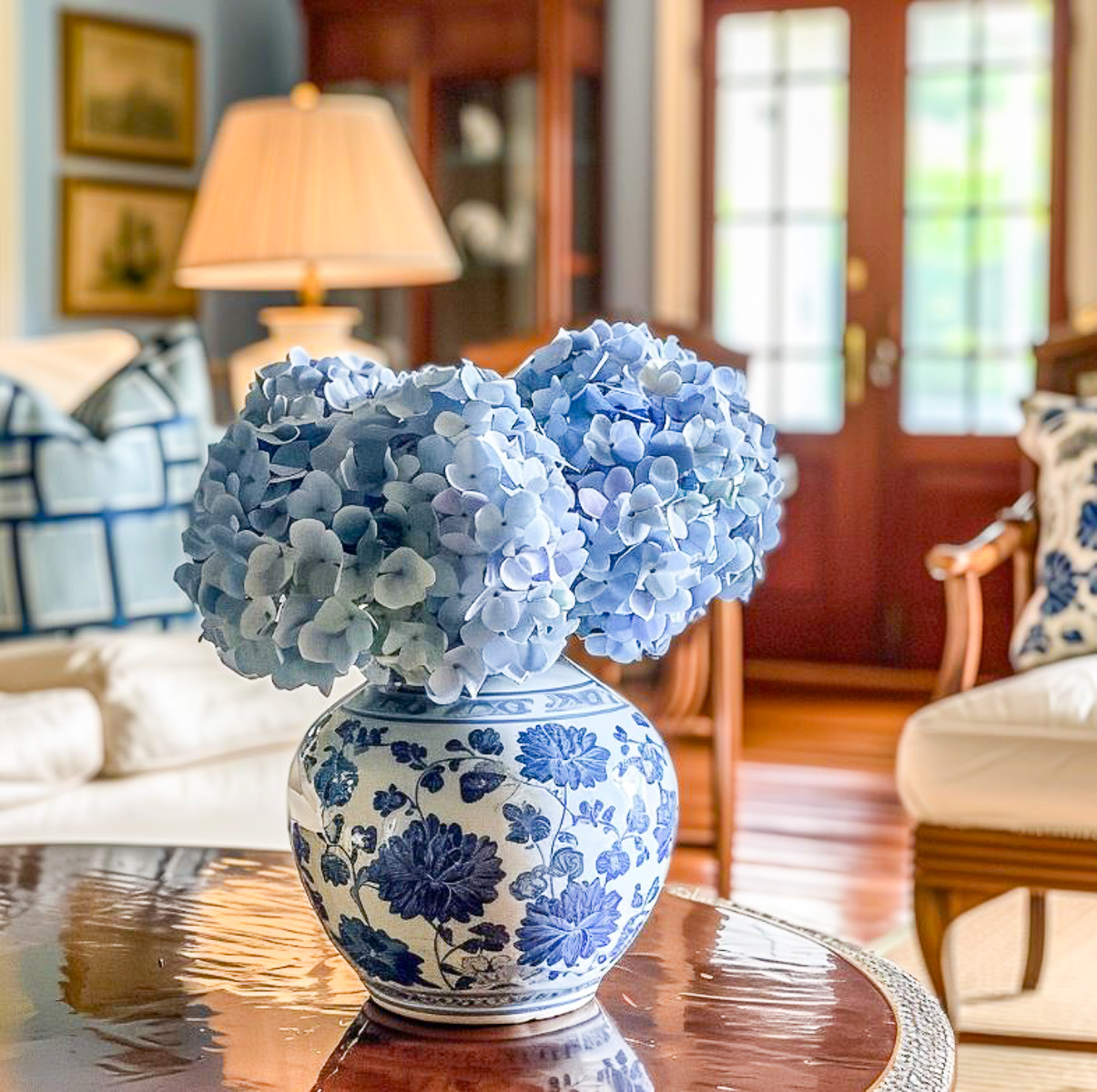

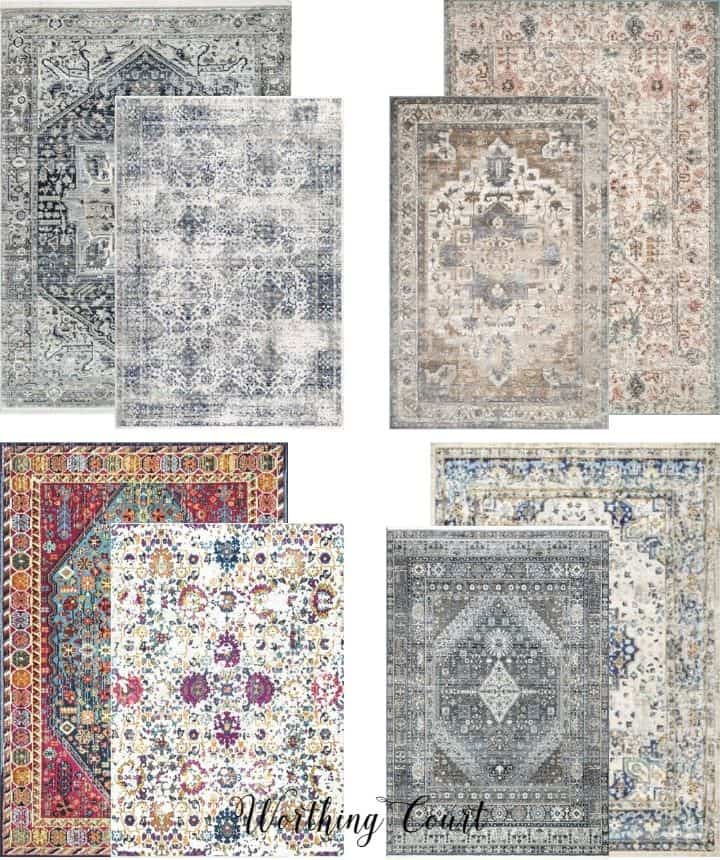
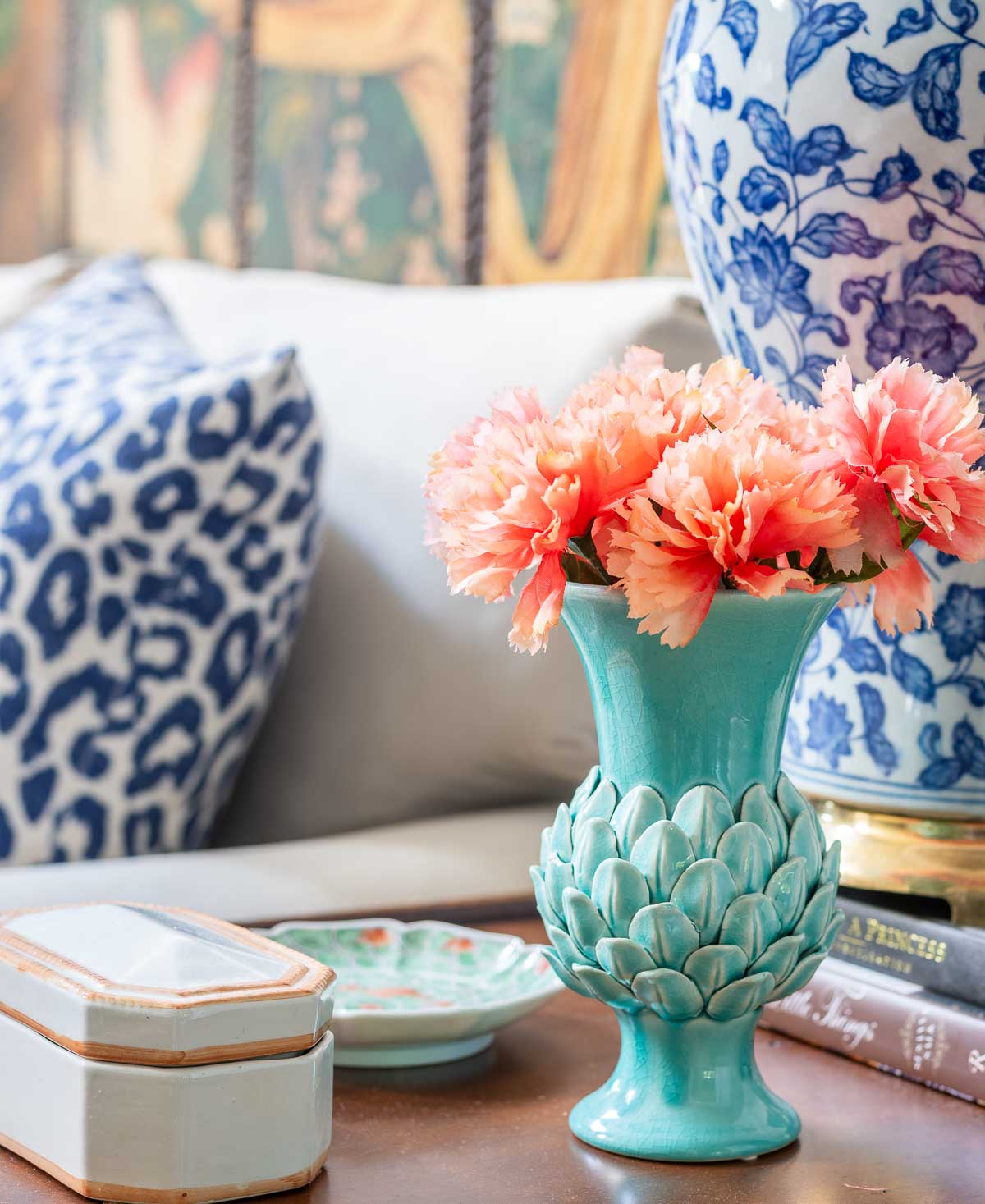
Did you make your Howard Hillar wall hangings above the blue console with wallpaper?
Do you mind telling me the width and height of the one in the middle and the ones on the side. Thanks so much!
Hi Sheilah. All three pieces of “art” are framed pieces of the Harrison Howard peel and stick wallpaper that were framed in thrifted frames. The frame for the one in the middle is wider than the wallpaper, so the backer board of the frame is painted gold so that it blends with the frame color. The largest pieces measures 30.5×24.5. The two smaller ones measure 20×8.5.
Love your two upholstered chairs. Do you have the name of the fabric that your upholsterer used? I was on the fence about reupholstering my chairs and after seeing your post have decided to get it done!
Hi Gina. The fabric mill is Hamilton and the pattern is called Paradise Leaf.
How do you pronounce Chinoiserie again?? Surely I’m not the only one 🤣😂🤣
No, you definitely aren’t!LOL
Suzy, can you tell me where you found the pagoda shaped candle lantern? I am IN LOVE!!!! I pinned your post.